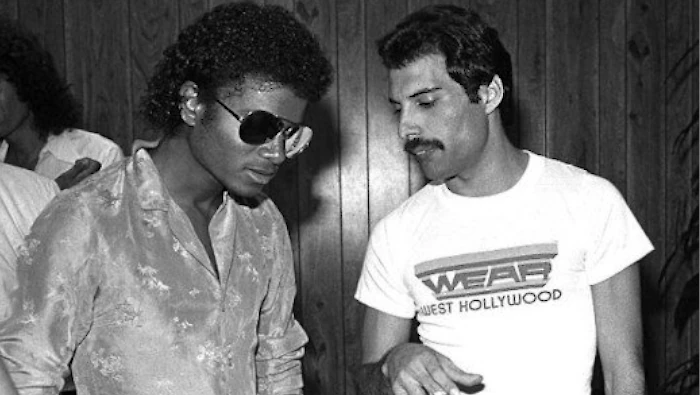Have you ever dreamed of making music at home and sharing it with the world? Do you want to learn how to record your own songs and produce them like a pro? Do you wish you could get signed by a record label and turn your passion into a career?
If you answered yes to any of these questions, then this blog post is for you. In this post, you will discover the secrets of home recording and how to avoid the three mistakes most musicians make when trying to do business with a record label.
These mistakes can cost you time, money, and opportunities. They can also prevent you from reaching your full potential as a musician and achieving your goals. But don’t worry, because we will show you how to fix them and how to create a home recording that sounds amazing and attracts the attention of the music industry.
By the end of this post, you will have a clear understanding of what home recording is, why it is important, and how to do it right. You will also learn how to create value through exclusivity and innovation, how to have a positive and entrepreneurial mindset, and how to maintain a professional and trustworthy image in the music industry.
So, are you ready to take your music to the next level and make your dreams come true? If so, then keep reading and discover the secrets of home recording and how to avoid the three mistakes most musicians make when trying to do business with a record label.
Mistake #1: They Spend A Lot of Time Practicing Their Music Skills or Composing

You might think that the more you practice your music skills or compose new songs, the more likely you are to get noticed by a record label. After all, you want to show them that you are talented, dedicated, and passionate about your music, right?
Wrong. While practicing and composing are essential for improving your craft and expressing your creativity, they are not enough to make you stand out from the crowd. In fact, they can even work against you if you spend too much time on them and neglect other aspects of your music career.
The truth is, quality musicians are everywhere. The music industry is saturated with thousands of artists who can play, sing, or write just as well as you or even better. It is not enough to be good at what you do. What makes you different from the rest? You need to offer something that no one else can. You need to create value through exclusivity and innovation.
What does that mean? It means that you need to find your unique selling proposition (USP), your niche, your style, your voice, your message, your brand. You need to create something new and striking, something that can catch the attention of your audience and the music industry. You need to make them curious, interested, and excited about your music.
Think about some of the most successful artists in the history of music. What do they have in common? They all have something distinctive, something memorable, something that sets them apart from the rest. For example, think about Katy Perry and Lady Gaga. Their singing and songwriting skills are great, but their style, appearance, vocal tone, and musical proposal are unique. They are not afraid to experiment, to challenge, to surprise, to shock, to entertain. They have created a loyal fan base and a strong brand identity that make them stand out from the crowd.
That is what you need to do if you want to get the attention of the music industry. Discovering your unique mode of self-expression is crucial, along with uncovering distinct avenues to deliver value and leaving an indelible impact. Strive for originality, authenticity, and remarkability in your endeavors. Embrace the essence of being yourself, but aspire to enhance and refine that authentic self.
So, how can you do that? How can you create value through exclusivity and innovation? Here are some tips to help you:
- Research your market. Find out what kind of music is popular, what kind of music is missing, what kind of music is in demand. Identify the gaps, the opportunities, the trends, the niches. See what you can offer that others can’t.
- Know your audience. Find out who are your ideal fans, what are their needs, wants, preferences, problems, desires, goals, dreams. Understand what they are looking for, what they are expecting, what they are feeling, what they are thinking. See how you can connect with them, how you can serve them, how you can delight them.
- Define your brand. Find out what are your values, your vision, your mission, your purpose, your story, your personality, your message, your voice. Understand what makes you unique, what makes you different, what makes you special. See how you can communicate that, how you can showcase that, how you can amplify that.
- Experiment with your music. Find out what are your strengths, your weaknesses, your skills, your talents, your passions, your interests, your influences, your inspirations. Understand what you can do, what you can’t do, what you want to do, what you don’t want to do. See how you can improve that, how you can change that, how you can combine that.
- Test your music. Find out what works, what doesn’t work, what resonates, what doesn’t resonate, what attracts, what doesn’t attract, what engages, what doesn’t engage. Understand what you need to keep, what you need to discard, what you need to tweak, what you need to polish. See how you can optimize that, how you can refine that, how you can perfect that.
By following these tips, you will be able to create value through exclusivity and innovation. Achieving an outstanding home recording, one that captivates the music industry’s attention, will be within your reach. Steering clear of the initial pitfalls that many musicians encounter in their dealings with record labels will be part of your skill set. Progressing toward your aspirations in the music industry will become more attainable for you.
Mistake #2: They Have a Conflicting Mindset With Recorder Interests

It’s possible to perceive record companies as entities poised to exploit, take advantage, and extract every ounce of value, seemingly aligned with a narrative of “evil capitalism.” It’s conceivable to view them as adversaries, oppressors, or even villains. The notion might cross your mind that going solo is the preferable path, that self-sufficiency is the key, and that reliance on them is unnecessary.
Wrong. While it is true that some record companies are unethical, greedy, and manipulative, it is not true that all of them are like that. In fact, most of them are not. The majority are characterized by honesty, fairness, and a supportive nature. They are present not only to assist but also to offer guidance and mentorship. Their aim is collaborative, working with you rather than in opposition to your goals.
The truth is, the record companies are your partners, your allies, your friends. Their purpose is not to cause harm; instead, they aim to provide assistance. Rather than taking from you, their intention is to give. Their goal is not to diminish your stature but to enhance it. They are present to collaboratively create value with you, for you, and for the broader market.
What does that mean? It means that you need to have a positive and entrepreneurial mindset, a mindset that is aligned with the interests of the record companies, a mindset that is conducive to success. Cultivate a mindset acknowledging that music is a business, and there’s nothing amiss in earning a livelihood through your musical endeavors. Foster a mindset open to collaboration with other prominent figures in the industry, ensuring collective prosperity. Develop a mindset centered on delivering greater value than you receive, fostering a scenario where everyone emerges victorious.
What does that look like? Evidently, possessing a well-defined vision of your goals and the means to attain them is crucial. Manifestly, conducting a pragmatic evaluation of your strengths and weaknesses and identifying avenues for improvement is essential. Clearly, adopting a proactive stance in learning and growth, and discerning how to leverage them, is key. Observable is the cultivation of a collaborative spirit in networking and partnering, and understanding how to derive benefits from such collaborations. Perceptibly, maintaining a grateful attitude towards feedback and opportunities, and learning how to genuinely appreciate them, is foundational.
Think about some of the most successful artists in the history of music. What do they have in common? They all have a positive and entrepreneurial mindset, a mindset that is aligned with the interests of the record companies, a mindset that is conducive to success. For example, think about Ed Sheeran and Taylor Swift. Beyond their exceptional vocal and songwriting talents, these individuals exhibit a profound business acumen, a strong work ethic, and a constructive rapport with the music industry. Fearlessly embracing learning, growth, change, adaptation, and innovation sets them apart. Continually seeking avenues to provide heightened value to their fans, collaborators, and the market at large reflects their proactive approach. Through this, they’ve cultivated a devoted fan following and established a robust brand identity, contributing significantly to their success.
That is what you need to do if you want to get the attention of the record companies. Cultivate a positive and entrepreneurial mindset that harmonizes with the goals of record companies, fostering an environment conducive to success. Discover your unique approach to generating, conveying, and disseminating value. Embrace attributes of intelligence, diligence, and collaboration. Exhibit professionalism, reliability, and trustworthiness as integral facets of your character.
So, how can you do that? How can you have a positive and entrepreneurial mindset? Here are some tips to help you:
- Educate yourself: This means that you need to learn as much as you can about the music industry and how it works. You need to understand the roles and interests of the record companies, the music business, and the music market. You need to find out what they are looking for, what they are offering, and what they are expecting from you. You also need to see how you can fit in with them, how you can stand out from them, and how you can contribute to them.
- Increase your value: This means that you need to improve your music skills and quality. You need to work on your music production, marketing, promotion, distribution, streaming, licensing, royalties, contracts, and publishing. You need to see how you can enhance your music and make it sound better, how you can optimize your music and make it more efficient, and how you can monetize your music and make it more profitable.
- Build your network: This means that you need to connect with other people in the music industry and create relationships with them. You need to reach out to other musicians, producers, managers, agents, promoters, distributors, publishers, licensors, influencers, celebrities, stars, icons, legends, idols, role models, mentors, coaches, and consultants. You need to see how you can collaborate with them and create projects with them, how you can partner with them and create opportunities with them, and how you can learn from them and get advice from them.
- Seek feedback: This means that you need to ask for opinions and suggestions from others and listen to them. You need to get feedback from your fans, followers, subscribers, customers, clients, partners, and mentors. You need to see how you can use their feedback and apply it to your music, how you can implement their feedback and improve your music, and how you can appreciate their feedback and thank them for their support.
By doing these four things, you will be able to succeed in the music industry and achieve your music career goals. Craft an exceptional home recording that captivates and draws the attention of record companies. Steer clear of the common pitfalls musicians often encounter when engaging with record labels. Realize your dreams with the skills and knowledge you’ll acquire along the way.
By following these tips, you will be able to have a positive and entrepreneurial mindset, a mindset that is aligned with the interests of the record companies, a mindset that is conducive to success. Attain the capability to produce an exceptional home recording that captivates and garners the notice of record companies. Evade the common second mistake made by musicians when navigating business with a record label. Propel yourself nearer to the realization of your music career aspirations.
Mistake #3: They Don’t Seem Very Trusted

There’s a perception that record companies might not prioritize your reputation, image, or trustworthiness. It’s possible to believe that their sole focus is on your music, talent, and potential. Some may assume they have the freedom to act without consequences—doing whatever they please, whenever, however, and with whomever.
Wrong. While it is true that the record companies care about your music, your talent, your potential, it is not true that they don’t care about your reputation, your image, your trustworthiness. In fact, they care a lot. Their concern stems from the impact your reputation, image, and trustworthiness can have on your music, talent, and potential. Equally, they care because these aspects influence not only your standing but also theirs—their reputation, image, and trustworthiness. Moreover, they recognize that your reputation, image, and trustworthiness extend beyond the individual level, affecting the broader landscape of the market, audience, and fans.
The truth is, the record companies want to work with musicians who are professional, reliable, and trustworthy. They want to work with musicians who have a positive and consistent reputation, a clear and attractive image, a strong and credible trustworthiness. They want to work with musicians who can represent them well, who can enhance their brand, who can increase their value.
What does that mean? It means that you need to maintain a professional and trustworthy image in the music industry, an image that is aligned with your music, your brand, your goals. Cultivate an image that mirrors your values, vision, mission, purpose, story, personality, message, and voice. Craft an image that effectively conveys your quality, uniqueness, authenticity, and remarkability. Establish an image that fortifies your credibility, authority, influence, and reputation.
What does that look like? Manifesting responsibility, respect, and ethics in your actions, words, and decisions is apparent. Projecting honesty, transparency, and consistency in your communication, information, and promises is essential. Demonstrating loyalty, support, and cooperation in your relationships, partnerships, and collaborations is integral. Embodying humility, gratitude, and generosity in your attitude, feedback, and approach to opportunities is vital. Radiating confidence, positivity, and optimism in your mindset, goals, and approach to challenges is key.
Think about some of the most successful artists in the history of music. What do they have in common? They all have a professional and trustworthy image in the music industry, an image that is aligned with their music, their brand, their goals. For example, think about Adele and Bruno Mars. Not only do they excel as singers and songwriters, but they’ve also cultivated an esteemed reputation, an impressive image, and a commendable level of trustworthiness. Steadfastly steering clear of scandals, controversies, and conflicts sets them apart. They garner respect, admiration, and love from the music industry, the media, and their fans. Through this, they’ve nurtured a devoted fan base and established a robust brand identity that underscores their trustworthiness.
That is what you need to do if you want to get the attention of the record companies. Sustain a professional and dependable presence within the music industry—one that harmonizes with your music, brand, and aspirations. Discover your unique mode of self-expression, your distinctive approach to delivering value, and your singular way of making an impact. Consistently embody professionalism, reliability, and trustworthiness in your interactions and endeavors.
So, how can you do that? How can you maintain a professional and trustworthy image in the music industry? Here are some tips to help you:
- Protect your reputation. Avoid doing anything that can harm your reputation, such as getting drunk, using drugs, breaking the law, cheating, lying, stealing, fighting, or insulting. Avoid associating with people who can harm your reputation, such as criminals, addicts, haters, or troublemakers. Avoid participating in events that can harm your reputation, such as scandals, controversies, or conflicts. See how you can prevent them, how you can avoid them, how you can resolve them.
- Enhance your image. Do things that can enhance your image, such as dressing well, grooming well, behaving well, speaking well, performing well, or creating well. Associate with people who can enhance your image, such as mentors, coaches, consultants, experts, leaders, or role models. Participate in events that can enhance your image, such as awards, recognitions, honors, praises, compliments, or endorsements. See how you can improve them, how you can optimize them, how you can leverage them.
- Build your trustworthiness. Do things that can build your trustworthiness, such as delivering quality, meeting deadlines, keeping promises, exceeding expectations, or adding value. Associate with people who can build your trustworthiness, such as fans, followers, subscribers, customers, clients, or partners. Participate in events that can build your trustworthiness, such as testimonials, reviews, ratings, rankings, referrals, or recommendations. See how you can increase them, how you can multiply them, how you can amplify them.
By following these tips, you will be able to maintain a professional and trustworthy image in the music industry, an image that is aligned with your music, your brand, your goals. Achieve the capability to produce an outstanding home recording that captures attention and appeals to record companies. Steer clear of the common pitfalls constituting the third mistake often encountered by musicians in their dealings with record labels. Propel yourself toward the realization of your goals within the realm of your music career.
Conclusion
In this blog post, you have learned the secrets of home recording and how to avoid the three mistakes most musicians make when trying to do business with a record label. In your journey, you’ve acquired the skills to generate value through exclusivity and innovation, fostered a positive and entrepreneurial mindset, and upheld a professional and trustworthy image in the music industry. You’ve mastered the art of crafting a captivating home recording that captures the attention of record companies. Additionally, you’ve honed the ability to progress steadily toward your music career goals.
We trust that you’ve relished delving into this blog post, finding it not only enjoyable but also valuable and informative. We trust that you’ve gleaned insights and tips that will prove beneficial in your home recording and music career endeavors. Our hope is that you’ve been stirred and empowered to pursue your passion, transforming your dreams into reality.
We would love to hear from you and know your thoughts and opinions about this blog post. We would also love to see your home recording and listen to your music. Please feel free to leave a comment below and share your feedback, questions, suggestions, or experiences. Please also feel free to share this blog post with your friends, family, or anyone who might be interested in home recording and music career.
Thank you for reading this blog post and for being part of our community of home recording enthusiasts. We appreciate your support and your friendship. We wish you all the best and we look forward to seeing you again soon.

